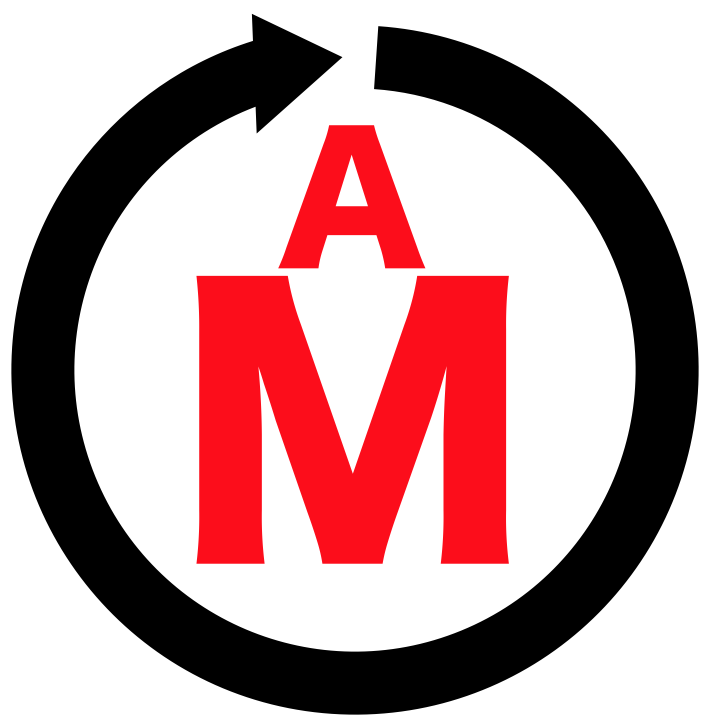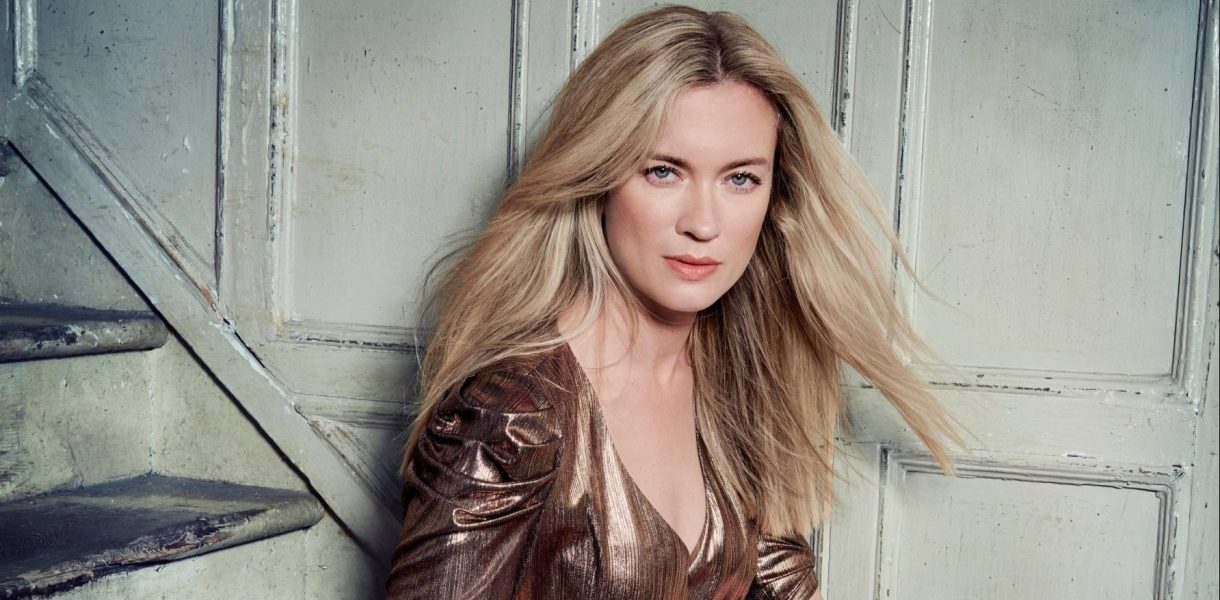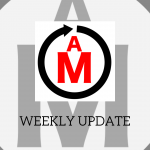“The word moving forward for musicians is collaborate. Just get out of your own head and into what is going on.”
Lizzie Ball
After reviewing the brilliant Classical Kicks and their rip-roaring Ronnie Scott’s livestream earlier this year, co-founder Hermione was lucky to have the opportunity to sit down/ Zoom chat with pioneering violinist/vocalist, Lizzie Ball. Since founding Classical Kicks in 2012, an innovative ensemble focused around breaking down the boundaries of classical performance, Ball has been the inimitable force behind the organisation. Her ability to lead, sing, present and produce is utterly astonishing and her energy for creativity is boundless.
Boasting a phenomenal freelance career, including tours with the likes of Hugh Jackman, Brian Wilson, Ariana Grande and Nigel Kennedy to name but a few, Ball is an incredible musician with rafts of advice and anecdotes to spare. Her genuine warmth and passion for all the individuals involved in the creative industries is inspiring to say the least and we are thrilled to have had the opportunity to chat with her about her career.
Hi Lizzie! Thanks so much for chatting to AM- could you just start by giving our readers a summary of your very varied skillset?
I call myself a creative concert producer because I really like to put on concerts that may be slightly different in production to your ‘average classical concert’. I founded my venture Classical Kicks in 2012 with the inspiration to take music that was predominantly classical out of the concert hall into different settings, but also mix it with other styles and just have a lot of fun at a really high level. That’s when we started performing at Ronnie Scott’s regularly.
I’m really intrigued as to the inspiration behind moving your career in that direction. I have definitely experienced the stuffiness of the classical industry so was wondering what your experience may have been!
When I was growing up Nigel Kennedy was like, the big name. As a kid, I was just drawn to this mad, crazy figure who just didn’t seem to be confined and as you say, the stuffiness had always been there. Growing up in the North of England, Sheffield at the time was going through this amazing indie explosion. So, even whilst I was learning my Mozart concertos and doing local music competitions, every other weekend I’d be playing in the nightclubs in string sections. It was just organic. I think when you are that age you don’t think about the fact that it’s classical and pop, you just play music. It didn’t really occur to me that I couldn’t play in a pub one night and then the next night go and do Derby music competition with Mozart. It just didn’t occur to me that that wasn’t possible.
Nigel Kennedy continued to play a really important role in your career, how did all of that play out?
He was always this person I looked up to. I think it was one of my early birthdays, my Mum took me to the city hall in Sheffield where he was playing ‘The Four Seasons’ and I remember gripping the railing and leaning over. Fast forward through University, I was living in London and trying to make my way as a freelance musician and he was playing at Ronnie Scott’s. He did a special five-night show which was rare because in those days he would only really play the big concert halls. A bunch of us got tickets and because I felt he’d been a huge part of my learning process as a young musician, I took a Bruce Chatwin book about the song lines in Australia, as a present.
I just wanted to give him something to say thanks for all of the inspiration. I went up to say hello and true to form he was just such a friendly, nice, down to earth character. We just had this lovely, amazing night and I went home thinking, has that just happened? Then he was sort of just on the periphery of my life. Occasionally, I’d send him a CD and he’d always respond to me or he’d invite me to the odd party he was holding so I could meet other musicians. There was a friendship there and I didn’t think much more of it than that. I just felt really blessed that I sort of knew him and had this connection. Towards the end of my twenties he’d got this tour planned with an orchestra that he’d been forming of his own. At the last minute, they’d had this change of personnel and were looking for a leader. Nigel personally asked me if I would do the job there and then, it was just so amazing. He had arranged those iconic Duke Ellington big band parts for string orchestra. It was literally the dream project and I just shut my life down for like three weeks and learnt the scores like the back of my hand.
From the first rehearsal, the minute he walked in and got his violin, I just knew what to do. And it was a strange thing, to lead the orchestra. For him, it could have gone either way and I’d never physically worked with him like that before. I just remember thinking, I know what you’re going to do. I think that had a massive effect on me touring with him at that crucial stage of my career, in my late twenties where things are still a bit uncertain. It gave me a lot of confidence to then go on and form Classical Kicks, because that really was the spirit. Seeing how he pushed boundaries and worked with audiences and had fun. Why is there such an obsession with this intensity and a seriousness? Why do we have to approach it like that? I think for me, it’s just never really been an option to do things like that.
That’s one of the things that really struck me about Classical Kicks, it was just lovely to see musicians onstage smiling and interacting with one another! I think that is a side that you often don’t get in a classical concert because there is such a formula to the way that things are done.
That makes me sad to hear that from your generation because you’re a good almost twenty years or so younger than me and I would have hoped that it might have kind of changed, but maybe not! We’ve got to keep punching and doing our thing!
Totally! Another aspect of moving away from that formula is definitely the programming of your shows. Where do you pull your music from and how do you go about choosing repertoire?
I think it’s just about energy of music. Curating programmes has always been one of my favourite things to do for the Classical Kicks gigs. We did our first main house Ronnie show last November with The Sixteen, an amazing choir. They’re the kind of incredible group that’s tradition in all its glory. Harry [Christophers] is like a rock star, but he stays in his lane of sacred music. They do it in a way that’s so distinctive because although they are within the very traditional construct of choral music he’s so kind of fluid and non-rigid about things.
When Ronnie’s approached me and said we actually want to put them on I was so delighted. Between us, we came up with this amazing programme. I wanted to show the origin of song. James [Pearson] arranged it so that there were these jazzy interludes in between a really bawdy, naughty Purcell song. With early music harmony, you can do quite a lot with it and make it quite jazzy. Then we actually did a bluegrass number but made the opening spiritual choral bit for everyone. Then a version of Dido’s ‘Lament’. One of their singers sung that and then I sang ‘Besame Mucho’. Then we finished with the pièce de résistance, which was Oscar Peterson ‘The Hymns of Freedom’, which is based on Martin Luther King’s speech, ‘I have a dream.’ James [Pearson] wrote a choral introduction in the style of sacred choral music, but with the words of the Martin Luther King speech in Latin. Then Isatta Sheriff (Rapper/Educator) actually came on and spoke part of the speech on stage.
I think a lot of it comes down to the arrangements. If you’ve got a good musical arrangement of something, it will work. I just want to find music that has some kind of story or meaning.
We’ve already touched on career highlights a bit already but do you have any particular moments on arena tours that have been really memorable?
Working with Hugh Jackman has got to be the ultimate highlight simply because he’s just the nicest person in the world and such an amazing guy. There is a real kind of glitter around him because he’s such a huge star but he’s just such fun. He has a total lack of ego and you’re like wow, this is so rewarding to see that this sort of A-list celebrity is genuinely quite humble, which is not always the way with people at that level. I’ve done arenas stuff with lots of different people but I think that was, that was the most recent one.
His drummer is one of the original Motown drummers, a guy called Brian Brake. I remember just turning to the left and thinking I’ve never heard drumming like that. It’s hard to explain, but someone who plays in the Motown style, it’s a particular way of keeping time which is when it’s that good. It’s simple, less is more. Often the thing about the arena tours actually is the wingmen that you have with you. So, with Hugh, it was great, but it was actually just as much as team that I was blown away by.
Considering how much of your life was obviously based around touring and performance, how have you been coping and dealing with the past year?
We’re all so tired, aren’t we? Boris and all the politicians early on, were kind of saying “we’re all in it together”. I just remember thinking no, we’re really not actually because although the globe is in it together from the point of view of being in a pandemic, for me, the polarisation began straight away. This this real. I feel very passionate that this sort of self-employed person versus employed person… there’s always quite a brutal divide. In a pandemic, it’s become almost seismic. I think it’s polarised a lot of those conversations because it’s impossible to imagine the hardship that some people have gone through in my industry. I would consider myself as fortunate, I got some support from the government. But whilst I was able to stay afloat, I know that it’s put me in more debt.
I have been in the studio at least once or twice a month recently, so it’s been a lot better. I worked really hard at my home recording setup and there been a couple of clients who have literally kept my lights on. I’ve really struggled mentally at times but I’ve also made the most of the time and completed life coaching training. That’s something I’m really proud of, because I have wanted to add that to my skill set for a while. It’s more about supporting the person supporting the mindset and then involving the instrument.
I’m interested in your home recording setup as from my own experience this is an area that is often neglected by instrumentalists but is obviously becoming more important considering how we are increasingly working remotely. How did you get into it?
I wasn’t really doing it myself until about a year and a half ago so it was a huge learning curve and I cried many times! It was like learning to walk again and not knowing what to do. Now I’m really quite adept at it and it isn’t actually that hard. Like anything, it’s just about practice but you don’t need much to make a good recording. All you need is a good microphone, a good interface and your computer. Those three things are of course an investment but if you are able to do that it will stand you in such good stead for the rest of your career because the great thing about that is that you can put it in your suitcase and anywhere you go you are able to record yourself which is really valuable. You could be on tour and also doing that in your breaks.
Your additional work outside of performance, such as meditation/mindfulness/outreach really flows into our inspiration for AM. We very much reacted to the ‘retraining’ comments made towards the creative industries in October 2020 as the music industry is so much wider than simply performance.
I’m so glad you said that because that was one of the things we got really cross about in the Let Music Live campaign. I was part of the organising team led by fellow violinist Jess Murphy for that and that was an amazing thing to do, the 400 musicians outside Parliament Square. (Check out our interview with Jess on the campaign here) It’s quite moving to think about it now and I think it did have an effect. It seems so ignorant and base the understanding of the industry. If you were to list the personnel on a tour it’s amazing. Every single person on that tour, no matter what they are doing is excellent at their job and it makes me so angry when I think about the privileged statements that were being made.
I’m mindful and concerned for those that are at music college now who are going to graduate. I gave a talk recently at The Royal Academy and I can tell people really need that support. That’s one of the reasons I wanted to do the life coaching as I felt I can impart a lot of my wisdom from all the mistakes I made. I’m going to package it in a way that’s quite unique to me, and hopefully will then be unique to certain musicians that might feel they are outside the box. I think misrepresentation happens in every way. It’s sort of everywhere in creative industries. As you say, if you’re not, perhaps in this “I only play Mozart or Brahms” bubble, people don’t quite know what to do with you so sometimes they just discard you. I’m really all about nurturing those people because that was me and I punched and made sure that I was heard. But not everyone is lucky like that. I did work hard and I had a certain level of skill to merit my success. But I also think there was some luck involved and not everybody is lucky. It’s often because of their lack of self-belief but it’s probably because the establishment is telling them they don’t fit.
Is there any advice that you would give to anyone coming up at the moment considering this chaotic landscape?
I maintain that the basics of meditation are life changing. I’ve been meditating for quite a few years using transcendental meditation. It’s a mantra-based technique that you do twice a day and a lot of people swear by it. If you’re not checking in with yourself on a daily basis, that’s what can lead to real difficulties, letting yourself run away with things or becoming ungrounded. I think it’s still a big issue that wellness is considered to be this add on that might get mentioned once in a seminar. It should be as important as your lessons, weekly coaching/mentoring/meditation classes. I hate that it is seen to be an alternative approach.
I think there is an opportunity to network and connect online. I’ve created some amazing creative communities this pandemic just by going through Zoom and connecting with people. Find your tribe, find them now and stick with them and make them your people. Like say with Classical Kicks, my amazing team of musicians who are like family. They are the people that bolster me and vice versa. Find your community and start building collaborations and projects. You might have to do some stuff for free but build up some content and some interesting ideas that could lead somewhere and get attention. In terms of making money, it’s a tough one because of the available work out there but there are a lot of funding resources that have opened up if you do your digging. Really search your local authority because you wouldn’t believe actually how many of the local councils have got hidden pots of money for things. There is still money out there to be had albeit you may have to apply for it.
For me, it’s always been about building your niche and being true to who you are. I’m a huge fan of the saying, stay in your own lane. It’s a bold move and it can be hard but looking back on what I’ve done, the biggest regret I would have had would have not been setting up Classical Kicks because that has given me everything from personal and emotional satisfaction to a unique brand that people now recognise me for. I’ve also been able to bring other people in and give them work and opportunity so again it’s that caring is sharing. The word moving forward for musicians is collaborate, just get out of your own head and into what is going on.
To find out more about Lizzie check out her website// http://www.lizzieball.com and follow her on Instagram, Facebook & Twitter
Upcoming concerts:
April 21st-28th: “David Soul in The Passion & Poetry of Pablo Neruda”
June 29th: Solo Show, Lizzie Ball: Swing into Summer
Words by Hermione Kellow
Photo © Lezli Rose








